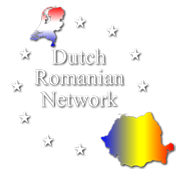Newsletter February-March 2024

Opportunities for Dutch agribusiness in Romania
The Dutch Romanian Network (DRN) and the interregional partnership of Agrifood Capital Den Bosch, Foodvalley Gelderland and Greenport Venlo (Food NL) are organizing a so-called Expert Meeting for the Agricultural Sector on Thursday, April 25.

The DRN and Food NL see great opportunities for Dutch entrepreneurs in the Romanian agribusiness. In the Netherlands, space is increasingly a limiting factor. On the contrary, in Romania there is plenty of room for entrepreneurship and development. It is really no coincidence that the Netherlands is the largest investor in Romania!
At this Expert Meeting, you will meet colleagues “from the profession” who are willing to share with you their acquired Romanian practical knowledge and experience. The Dutch partner of Mazars Romania (integrated accountancy, tax and advisory organization) is also present, as the tax-friendly business environment also plays a role, such as the mandatory electronic invoicing system (RO E-Factura platform) introduced on January 1.
For further information about the location, program, date and times and the registration form, please click
here
DRN Welcomes Just Aqua SRL from Arad as new member

 Just Aqua’s business activities focus on supplying demineralized water commonly used in laboratories, and for industrial and scientific purposes. The land has been purchased for this purpose and the plant and facilities are also ready and sources operational. The company is in the start-up phase and has begun construction of the bottling plant. They have the ability to exploit up to 1 billion gallons of water annually for a period of 50 years.
Just Aqua’s business activities focus on supplying demineralized water commonly used in laboratories, and for industrial and scientific purposes. The land has been purchased for this purpose and the plant and facilities are also ready and sources operational. The company is in the start-up phase and has begun construction of the bottling plant. They have the ability to exploit up to 1 billion gallons of water annually for a period of 50 years.
A “vertical agriculture” project has now been added, which is a very important part of the future food chain.
For further information, see www.justaqua.com
Agricultural sector
Farmgate pork prices have seen the steepest decline in the EU. However, it is still higher than last year’s costs
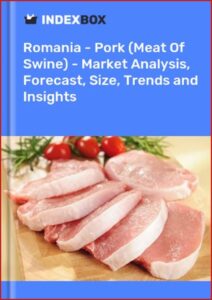 The farm-gate pork price in Romania also continues the downward trend that farmers from the rest of the EU were previously on, but remains higher than in the same period last year. In the week before Feb. 12, the average price reached its lowest level since August 2023, following a steep 13% decline from the previous month, the largest decline among the member states.
The farm-gate pork price in Romania also continues the downward trend that farmers from the rest of the EU were previously on, but remains higher than in the same period last year. In the week before Feb. 12, the average price reached its lowest level since August 2023, following a steep 13% decline from the previous month, the largest decline among the member states.
The average price of category S pork (the most traded) at the gates of Romanian farms reached 210.6 euros per 100 kilograms of carcass in the seventh week of this year, the lowest level since August 2023, according to the latest data from the European Commission.
It is the ninth week of continuous price declines in Romania, in line with the trend noted earlier in the other EU countries, where the average was 209.7 euros per 100 kilograms of carcass. Early this year, for example, 100 kilograms of pig carcass cost an average of 260.9 euros in Romania, compared to 265 euros in August 2023 and a maximum of 268.6 euros in December.
Moreover, average prices fell 1% from the previous week, with Romania, like Sweden, reporting the largest price decline in the EU, while only Finland saw a slight drop in prices (minus 1.1%). Otherwise, the average price in the other EU countries rose between 0.9% in Estonia and Slovakia and 4.6% in Belgium.
At the same time, compared to the previous month, the price in Romania fell by 13.7%, the biggest drop in the EU, where the average price rose by 1.9%.
Still, Romania remained one of five EU countries where pork remained more expensive compared to the comparable 2023 period. To be more precise, local farmers are now selling at 2.4% more expensive than last year, Danes at 3.9% more expensive, Croats at 2.7% more expensive, Irish and Swedes at 0.1%,
The rise of regenerative agriculture in Romania
Romania, a country known for its rich biodiversity and vast agricultural lands, experiences a unique balance between agriculture and nature. Although the history of state agriculture during the communist era had harmful environmental consequences, the transition to a free-market economy has brought challenges to the agricultural sector. Fortunately, there are also many opportunities. And multilateral cooperation with countries like the Netherlands can yield even more.
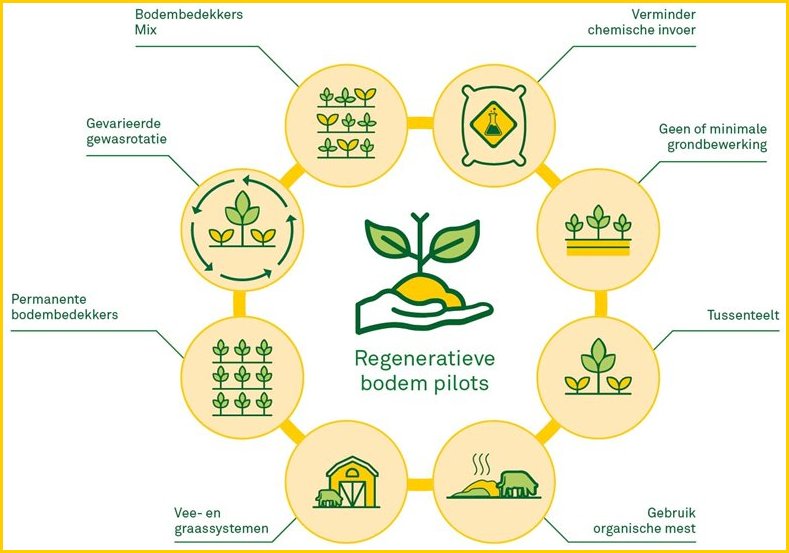
During communism, Romanian agriculture was almost entirely state-owned and on a large scale, and forest or marshy areas were converted to farmland, increasing flood risk and reducing biodiversity. After the return to a free-market economy in 1989, the country faced a large fragmentation of farmland ownership due to the return of land to precommunist owners, as well as the lack of capitalization of its farmers after 1989. However, the lack of sufficient financial resources has led to lower use of agrochemicals, putting Romania at the bottom of the EU list with the lowest amounts. Similarly, the large number of small farms that are extensive and traditional farms has resulted in a lower impact on nature and biodiversity. ‘The Soil and Soul project lays the foundation for a network of regenerative farms that share an ethical system of food production and distribution with a positive impact on the environment’ Small-scale subsistence farming
Past disadvantages, future benefits
Economically, this situation had its price: the smaller farms failed to make a substantial contribution to the efficiency and profitability of Romania’s overall agricultural production, while the larger farms could not fully compensate for the gap in production and efficiency, leading to a slower development of the sector compared to Western Europe.
Nevertheless, Romania is in a rather fortunate position and benefits from a large agricultural base and vast areas of rich biodiversity. Although the balance between agriculture and nature is not always present, the two are not as conflicting as in other European regions where competition for land is more intense and environmental pressures are greater. Unlike their Western counterparts, Romanian farmers have yet to make agriculture more efficient and productive. This process must take into account a number of new realities.
New roles of farmers
The key reality is that Romanian farmers are no longer just owners or users of agricultural land.They are seen as food suppliers: food that must be safe, nutritious, affordable and sustainably produced. But their role has grown, and society also sees them as stewards of natural resources and traditional values and as contributors to the fight against climate change. Are Romanian farmers ready for this complex role? Some yes, some try to ignore the signals, others remain conservative. They can still afford it, in a society where price is a decisive factor when buying food. Progressive farmers, however, look to the future; they see where harmony with nature has been lost and must be regained.
Nature-friendly practices slowly gaining ground
More environmentally friendly agriculture received attention when Romania joined the European Union in 2007. EU agri-environmental programs (offering incentives for more nature-friendly farming practices and organic farming) have been an eye-opener for Romanian farmers. Many larger farmers have recently invested in precision agriculture. Is it for the sake of the environment? Or is it just to cut costs? What ultimately matters is that the environment and the climate benefit from these modern technologies and digitalization. The concept of permaculture or regenerative agriculture is slowly but surely gaining traction, especially from more environmentally conscious players. They define this concept as the conscious design and maintenance of agriculturally productive ecosystems that have the diversity, stability and resilience of natural ecosystems. To facilitate permaculture, the Institute for Permaculture Research in Romania (ICBR), a nonprofit organization representing the Romanian permaculture community, was established.
Soil and Soul project of regenerative agriculture
Soil and Soul is an innovative project on permaculture and regenerative agriculture developed by ICBR and supported by Kaufland Romania. Regenerative agriculture aims to protect and regenerate the natural systems (soil, water, biodiversity) that help produce food. It places special emphasis on improving soil conditions and regenerating degraded soils through active practices 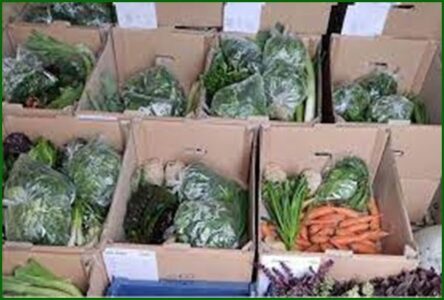 and techniques. The Soil and Soul project lays the foundation for a network of regenerative farms that share an ethical system of food production and distribution with a positive environmental and economic impact, leading to a responsible society. The project has resulted in the first regenerative farm in Romania, where research and development is conducted according to a regenerative production model and where young farmers receive training through internship programs. The farm is located about 80 km north of Bucharest, in Vlădeni, in Dâmbovița province. It covers more than 6 hectares and includes 10,000 square meters of vegetables grown in the field in a bio-intensive system; 10,000 square meters of arable crops; 5,000 square meters of pasture in a holistic management system and 2,500 square meters of protected space (plastic tunnels). In addition, it has a 300-square-meter greenhouse for the production of organic seedlings; 7,000 square meters of mixed orchard interspersed with vegetable gardens (with multiple roles: fruit production, windbreak and habitat for increased biodiversity); 4,000 square meters of protective forest hedge (windbreak) around the site and 350 square meters of a multipurpose agricultural barn. There is also a 1,000-square-meter pond to collect water for irrigation and in times of drought, and to create microclimates and habitats for greater biodiversity. And finally, there is a 200-square-meter basin for the collection, filtration and biological treatment of rainwater. The goal of the farm is to develop and promote a regenerative production model, in parallel with the ongoing training of a team of managers who can gradually acquire the independence and capacity to manage and develop a regenerative farm, as part of a national network. Upon completion of the internship program, some continue to work on the farm and others start their own regenerative farm, supported by mentoring and advice from the project. An internship can last two months, forty hours a week. Soil and soul farm
and techniques. The Soil and Soul project lays the foundation for a network of regenerative farms that share an ethical system of food production and distribution with a positive environmental and economic impact, leading to a responsible society. The project has resulted in the first regenerative farm in Romania, where research and development is conducted according to a regenerative production model and where young farmers receive training through internship programs. The farm is located about 80 km north of Bucharest, in Vlădeni, in Dâmbovița province. It covers more than 6 hectares and includes 10,000 square meters of vegetables grown in the field in a bio-intensive system; 10,000 square meters of arable crops; 5,000 square meters of pasture in a holistic management system and 2,500 square meters of protected space (plastic tunnels). In addition, it has a 300-square-meter greenhouse for the production of organic seedlings; 7,000 square meters of mixed orchard interspersed with vegetable gardens (with multiple roles: fruit production, windbreak and habitat for increased biodiversity); 4,000 square meters of protective forest hedge (windbreak) around the site and 350 square meters of a multipurpose agricultural barn. There is also a 1,000-square-meter pond to collect water for irrigation and in times of drought, and to create microclimates and habitats for greater biodiversity. And finally, there is a 200-square-meter basin for the collection, filtration and biological treatment of rainwater. The goal of the farm is to develop and promote a regenerative production model, in parallel with the ongoing training of a team of managers who can gradually acquire the independence and capacity to manage and develop a regenerative farm, as part of a national network. Upon completion of the internship program, some continue to work on the farm and others start their own regenerative farm, supported by mentoring and advice from the project. An internship can last two months, forty hours a week. Soil and soul farm
Farm internship
An example of an internship is the Organic Regenerative Vegetable Farming Program. It helps clarify participants’ views on production issues, farm management and lifestyle and the future of regenerative agriculture before investing time and resources in their own farms. The farm plans to expand the educational center’s accommodation capacity to accommodate more volunteers, interns, visitors or staff. Volunteers stay an average of one month and have a schedule of five hours a day, five days a week. Outside of this schedule, they work on their own projects and learn about life on a farm. This year, the company plans to develop its own infrastructure, such as climate automation for protected vegetable production and housing space. The company will also continue the development of its production model in parallel with increased production and sales. Farm products are sold and promoted online, as well as in major supermarkets. Customers can subscribe to receive a basket of various farm products at home (bimonthly).
Green education and knowledge transfer
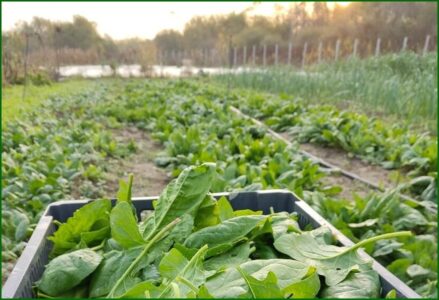 Price is still considered the most important factor in food choices. Other factors, such as nature and animal welfare, are becoming increasingly important, but at a very slow pace. Therefore, consumer education is critical because it can stimulate demand for sustainable products and healthier eating patterns. Equally important is the education of farmers and other chain players about nature-friendly and nature-inclusive agricultural practices, their changing role in society, and the opportunities and threats in this changed environment. In addition, authorities can also consider promoting sustainable agricultural practices by example. For example, by limiting public food catering to products from sustainable farms. Or include these products in subsidized school feeding programs, such as the school fruit scheme or the free hot meal program for schools. And just as importantly, by creating the right environment and incentives for the development of education and research in sustainable agricultural practices such as nature inclusive agriculture.
Price is still considered the most important factor in food choices. Other factors, such as nature and animal welfare, are becoming increasingly important, but at a very slow pace. Therefore, consumer education is critical because it can stimulate demand for sustainable products and healthier eating patterns. Equally important is the education of farmers and other chain players about nature-friendly and nature-inclusive agricultural practices, their changing role in society, and the opportunities and threats in this changed environment. In addition, authorities can also consider promoting sustainable agricultural practices by example. For example, by limiting public food catering to products from sustainable farms. Or include these products in subsidized school feeding programs, such as the school fruit scheme or the free hot meal program for schools. And just as importantly, by creating the right environment and incentives for the development of education and research in sustainable agricultural practices such as nature inclusive agriculture.
Learning from through multilateral cooperation
Bilateral or even multilateral cooperation has important benefits for Romania. In recent years, Dutch-Romanian cooperation in green education – with the support of LAN-Romania – has laid a solid foundation for this. Learning can go both ways: The Netherlands can benefit from new practices currently being implemented in Romania (and see them as living labs), while Romania can benefit from Dutch innovation capacity and long experience in horizontal and vertical cooperation, in a sector facing unprecedented challenges.
DN AGRAR, the largest integrated livestock producer in Romania, has received a €9.2 million loan from Exim Banca Românească to double its operations
DN AGRAR Group, the largest integrated animal husbandry company in Romania, with cow milk production and vegetable production, announces that it has obtained financing of 9.2 million euros to expand its production capacities. The bank will access a credit facility from Exim Banca Românească SA for the development of the Straja farm, to purchase equipment and animals.
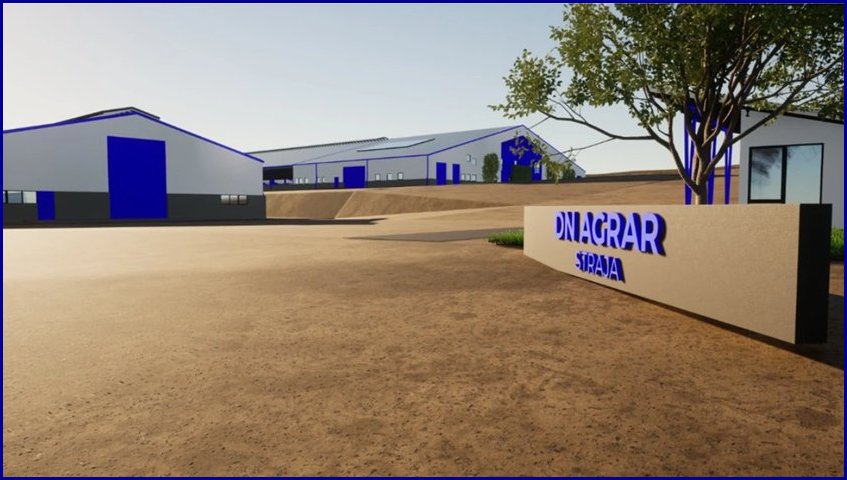
In addition, DN AGRAR will contribute 20.78% from its own sources for this project. The financing of the project and related conditions are subject to shareholder approval at the March 12, 2024 AGEA.
“Our strategy is to support integrated agriculture, part of a circular economy. We have strengthened the group in recent years through new acquisitions, and in 2023 we launched the Straja project that aims to expand production capacity by 5,000 cattle, doubling sales and increasing livestock at DN AGRAR Prodlact by the end of 2027. We propose operationalization from the 3rd quarter of 2024, with 600 dairy cows. There will be a period of gradual increase in production capacity, and the maximum will be reached by the end of 2027. We will continue to streamline the Group’s operations through digitalization and modernization, and we want to maintain attractive growth rates for the company and strengthen the partnership. With the new investors attracted through the Bucharest Stock Exchange in recent years,” said Jan Gijsbertus de Boer, Chairman of the Board and CEO of DN AGRAR Group.
“Agriculture is a strategic area for Exim Banca Românească and we are happy to support Romanian agribusiness through this partnership with DN AGRAR Group. The partnerships established with reference companies in the economy represent a clear indicator of our ability to identify and structure financial solutions for any sustainable business, an ability that gives us the status of a preferred financier for companies,” said Traian Halalai, executive president of EximBank. .
The Straja farm will cover an area of 10 hectares, have two milk rotors and reach maximum capacity in three years, with an estimated milk production of about 100,000 liters of milk per day by the end of 2027.
DN AGRAR Group, consisting of 13 companies, four of which are farms specializing in the rearing of dairy cattle and the production of cow’s milk, carries out an integrated range of activities, including logistics services and transportation of cow’s milk at national and European level. In grains, the group farms more than 7,000 acres with grains and feed, primarily to provide food for the approximately 14,000 animals on DN AGRAR Group farms. In 2023, the amount of milk delivered by DN AGRAR Group cow farms was about 55 million liters of milk, an increase of about 14% from 2022.
About DN AGRAR Group
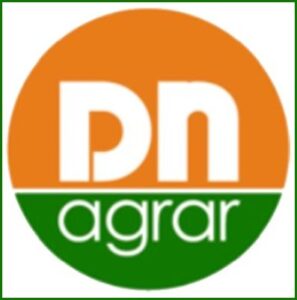 DN AGRAR Group is the largest integrated livestock company in Romania, with cow milk production and vegetable production. The group operates in central Transylvania, in the provinces of Alba, Sibiu and Hunedoara.
DN AGRAR Group is the largest integrated livestock company in Romania, with cow milk production and vegetable production. The group operates in central Transylvania, in the provinces of Alba, Sibiu and Hunedoara.
The company was founded in 2008 by Jan Gijsbertus de Boer and is listed on the Bucharest Stock Exchange on the AeRO market as of February 2022. As of Sept. 19, 2022, DN AGRAR shares are included in the BETAeRO index of the most traded companies in the System Multilateral Trading SMT.
The company’s main areas of activity are animal husbandry, agricultural crop production, agricultural services, logistics, transportation, tourism and business and management consulting services.
Jan de Boer wants to share his knowledge with you at the Expertmeeting in Venlo. He is an “old” acquaintance of the DRN. In 2016, he was awarded the Romanian Business Award.
About Exim Banca Românească
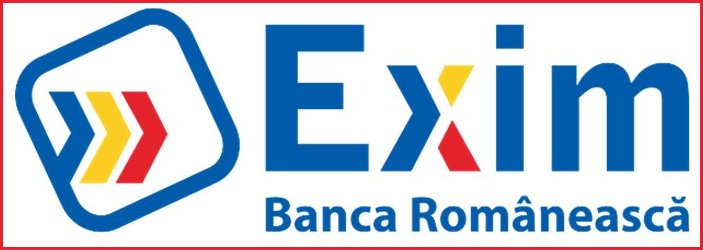 Exim Banca Românească is a 100% Romanian universal bank, ranked in the top 10 largest credit institutions in terms of assets. The bank offers its corporate clients a wide range of quality products and services, covering the entire financing cycle, as well as transactional finance, guarantees, insurance, treasury products, cash management, factoring and trade finance.
Exim Banca Românească is a 100% Romanian universal bank, ranked in the top 10 largest credit institutions in terms of assets. The bank offers its corporate clients a wide range of quality products and services, covering the entire financing cycle, as well as transactional finance, guarantees, insurance, treasury products, cash management, factoring and trade finance.
Who are the largest Romanian milk processors? Top 10
 Dairy processors in Romania bought just over 1 billion kilograms of milk from local producers last year, just 2.8% more than the previous year. One-third of the amount went to Lactalis, Olympus, Simultan, Danone and Hochland. Compared to last year, the change comes from FrieslandCampina, owner of the Napolact brand, which lost two positions in favor of Hochland and Carmo-Lact.
Dairy processors in Romania bought just over 1 billion kilograms of milk from local producers last year, just 2.8% more than the previous year. One-third of the amount went to Lactalis, Olympus, Simultan, Danone and Hochland. Compared to last year, the change comes from FrieslandCampina, owner of the Napolact brand, which lost two positions in favor of Hochland and Carmo-Lact.
After the year 2022 with declining consumption and a negative start to 2023, the balance sheet of Romanian milk processors (primary buyers) shows an increase of 2.8% in the quantities purchased from local farmers compared to the previous year.
In 2023, market players bought just over 1 billion kilograms of milk, according to an analysis by Economica based on data from the Agency for Agricultural Payments and Interventions (APIA).
A third of the quantity (371.7 million kg) arrived for processing at the French group Lactalis , Fabrica de Late Brașov (Olympus), domestic producer Simultan , Danone and Hochland . And unlike last year, the only notable shift to the bottom of the rankings was that of FrieslandCampina, maker of the Napolact, Campina, Milli and some private labels of major retailers.
To be precise: FrieslandCampina dropped two positions in the 2023 ranking of milk first buyers, to seventh place, in favor of Germans from Hochland and Carmo-Lact Prod (Monor), a company controlled by Termene.ro. , by entrepreneurs Creosteanu Eugen, Neagoș Ioan and Neagoș Alin.
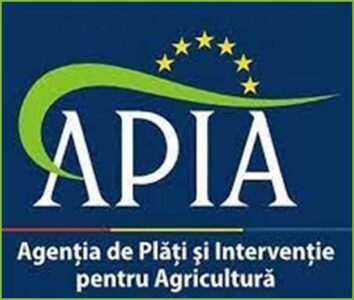 One explanation, as officials from FrieslandCampina argued for Economica magazine a few years ago, could be the business model. More precisely, it also buys directly, in which case it appears in the APIA statistics as the first buyer, as well as through farmer cooperatives, when the first buyer is the association.
One explanation, as officials from FrieslandCampina argued for Economica magazine a few years ago, could be the business model. More precisely, it also buys directly, in which case it appears in the APIA statistics as the first buyer, as well as through farmer cooperatives, when the first buyer is the association.
Also missing from the cited APIA data are the imports that processors typically use when they cannot find local milk or when prices do not match the company’s cost policy.
The eighth position was awarded, as in 2022, by Therezia Prodcom of Mureș, a company worth 63.9 million lei in 2022, controlled by the Bartha family of Mureș, while Prodlacta SA Brașov took the ninth and tenth positions, a company listed on the AeRO. market of BVB and Five Continents Group from Botoșani, a company controlled by Romanian and Lebanese citizens (Khalil, Boldea, Grecu families).
The amount of milk purchased by the first 10 startups last year was 476.2 million kilograms, compared to 467.8 million a year ago.
In 2022, ninth and 10th place were held by Tudia from Suceava and Unicarm Satu Mare.
Top 10 startups enrolled in register of startups milk by numbers of milk purchased in 2023
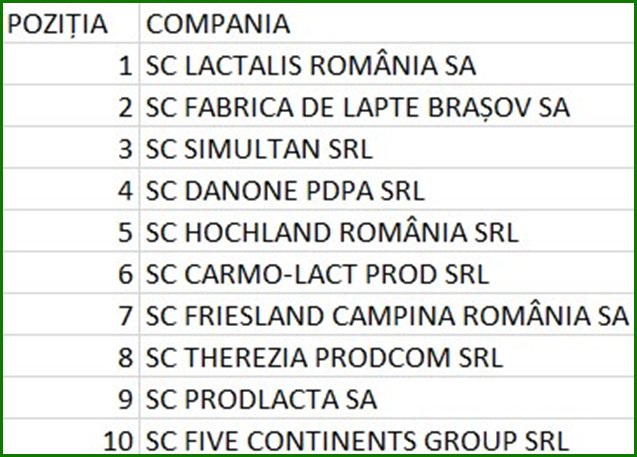
Source: Agricultural Payments and Interventions Agency (APIA)
“Farmer credit” – State aid scheme and offsetting half of electricity costs for irrigation approved by government
The government approved a support package for farmers and the agricultural sector on Thursday, Feb. 8, consisting of the state aid program “Farmer’s Credit,” as well as the settlement of half of the electricity costs for irrigation, executive spokesman Mihai Constantin announced.
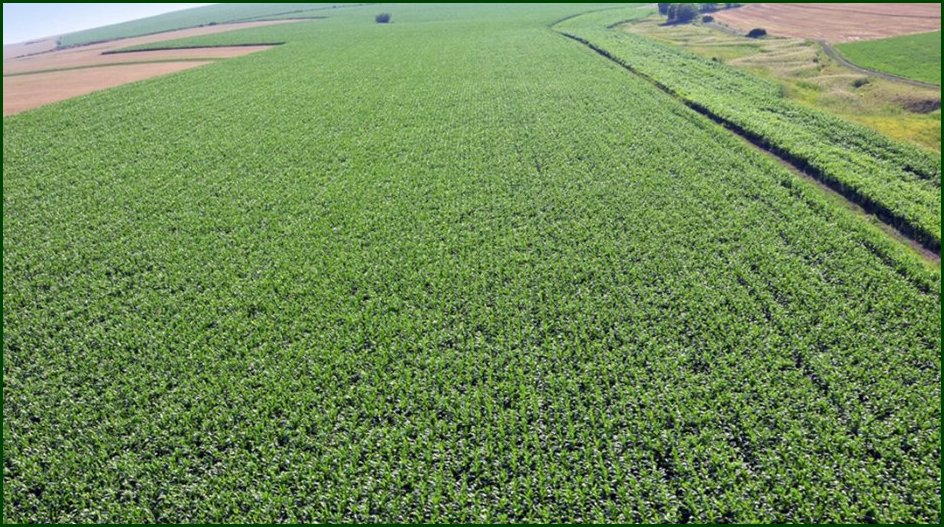
“A package of measures was approved to support farmers and the agricultural sector with two new solutions that support people in the field. On the proposal of the Ministry of Agriculture, the government approved the State Aid Program “Farmer’s Credit,” a program to support access to financing for companies operating in the field of primary agricultural production. The total value of state aid granted 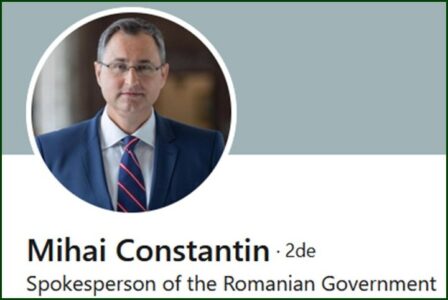 is approximately 164 million euros. The state aid is provided in the form of a grant covering the interest component of the loans and representing the ROBOR portion at three months, which is the reference when granting such a loan, granted for a period of up to 60 months,” Constantin said after the Executive meeting.
is approximately 164 million euros. The state aid is provided in the form of a grant covering the interest component of the loans and representing the ROBOR portion at three months, which is the reference when granting such a loan, granted for a period of up to 60 months,” Constantin said after the Executive meeting.
He said the second mode of support for farmers decided on Thursday by the executive is to pay half of the electricity costs for irrigation.
“And this measure targets farmers who benefit from secondary irrigation infrastructure and local irrigation systems. Adopting this government decree established the method for offsetting expenses in quotas of up to 50% for electricity consumption required for the operation of irrigation equipment, and these funds are borne from the state budget. This settlement solution for a significant portion of irrigation costs incurred by farmers last year is obviously aimed at the economic recovery of producers due to the damage caused by the drought,” explained Mihai Constantin.
He also announced that Romania will receive 34 million euros from the European Union’s Solidarity Fund, as support for the damage caused by the 2022 drought.
“Also related to the drought, but we are talking about the 2022 summer season, Romania will benefit from 34 million euros of aid from the European Union Solidarity Fund. The money was already transferred in December last year, 2023, and our country has 18 months to implement this aid,” Constantin said.
Water Sector
Entrepreneurship in the international (Romanian) water sector
The Netherlands has an excellent name and reputation when it comes to the international water sector with their knowledge, expertise and innovativeness. However, due to divided (international) action, many lucrative assignments are lost. Often the foreign clients are governments and therefore the Dutch government, in this case Partners for Water, under the auspices of the Rijksdienst voor Ondernemend Nederland (RVO), offers the (subsidized) opportunity to entrepreneurs to conduct a study on the:
- Feasibility of a (pilot) project you want to carry out abroad;
- conditions for conducting a pilot project, technically, financially and legally;
- application of an innovation (innovation) for water safety and water security
We consider water safety and water security in deltas, delta cities and river basins abroad. In the context of the Agricultural Sector Expert Meeting, irrigation can also be considered.

Through PVW IVWW, you are helping to achieve the Sustainable Development Goals (SDGs). This scheme falls under the Partners for Water 2022-2027 program. This program contributes to the Netherlands International Water Ambition (NIWA). The goal of the NIWA is to increase water safety and water security for humans, plants and animals.
The purpose of PVW IVWW is to promote water safety and water security in a delta, delta city or river basin abroad. Water safety and water security mean sustainable protection against too much, too little or too dirty water. To this end, you will deploy innovative Dutch knowledge and experience. The knowledge and experience must be innovative for the environment where you will use it. This means that you adapt the knowledge to use under local conditions.
You can still participate in the second opening now until next August 15, and for more information please visit administratiepvw@rvo.nl
Transport and Logistics Sector
H.Essers România earns kudos for corporate social responsibility
H.Essers’ branch in the Romanian city of Oradea is under the leadership of Jeroen Fabry.
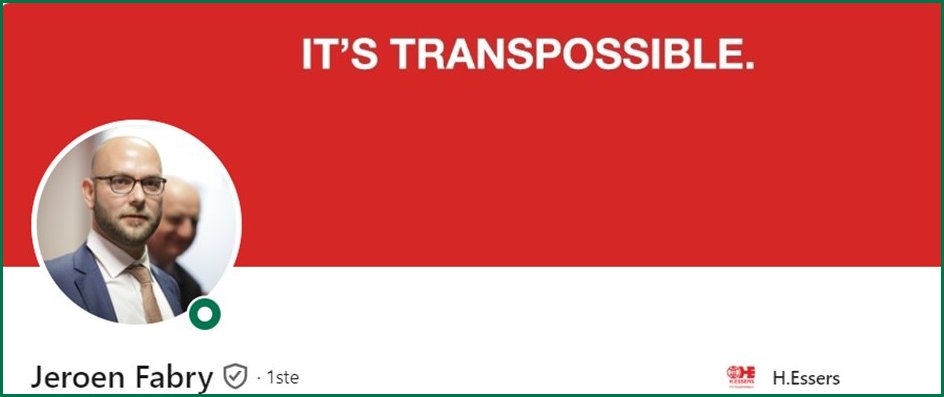
They launched a project last year in collaboration with Agenția de Dezvoltare Locală Oradea to refurbish a place in the center of Oradea and transform it into a professional classroom where we can organize trainings in #roadsafety for the children studying in the city and in the countryside.
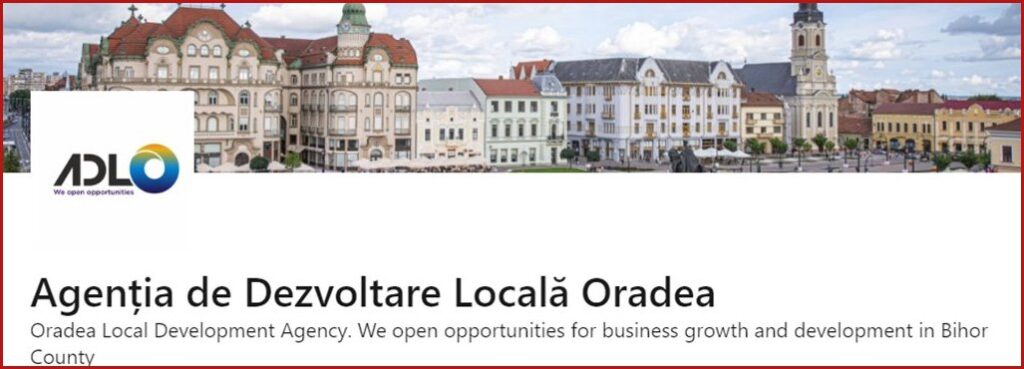
We aim to bring a significant number of kids each year where they can show them what #safetyontheroad means and how to bond with truck drivers when they are at the wheel.
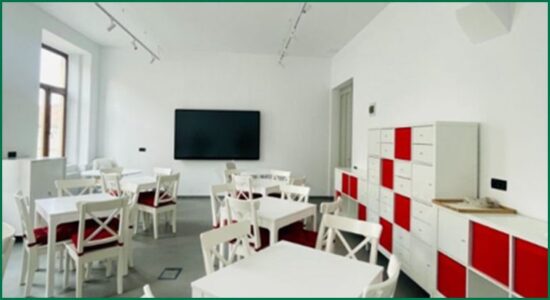
A milestone in what education and good practice in the transportation sector means with the slogan “Safety First – Our Children, Our Future!
Automotive Sector
DACIA PRESENTS SPECTACULAR SANDRIDER FOR DAKAR 2025
Dacia unveils the Sandrider with which the brand will compete in the 2025 World Rally-Raid Championship, culminating in the Dakar Rally. Inspired by the Dacia Manifesto, the Sandrider will be homologated for participation in the Ultimate T1+ category. Participation in motorsport is a way for Dacia to test its approach to the essential and commitment to further CO2 reduction in the toughest terrains.

The Dacia Sandrider will run on a synthetic test fuel from Aramco.
Dacia continues its mission to redefine essence with participation in the Dakar Rally and the World Rally-Raid Championship (W2RC) starting in 2025. The brand enters the fray with the Sandrider specifically designed to excel in the toughest and most demanding terrains.
The Dakar Rally and World Rally-Raid Championship races are among the world’s motorsports events. For this reason, the Sandrider required an approach that takes Dacia’s rugged outdoor concept to the extreme.
Shipbuilding Sector
Submarines, cheap is expensive
According to the Telegraph, Naval can deliver “the best boat for the best price. Because the yard is partly French state-owned, it can take greater risks and deliver at prices that a commercial shipyard can hardly compete with. “It should never just be about the lowest price,” says Zeeland deputy Jo-Annes de Bat. “But that now depends on the cabinet. To what extent do they weigh that in? To what extent do they have an eye for that knowledge development, but also for innovation in that very broad maritime military sector?”
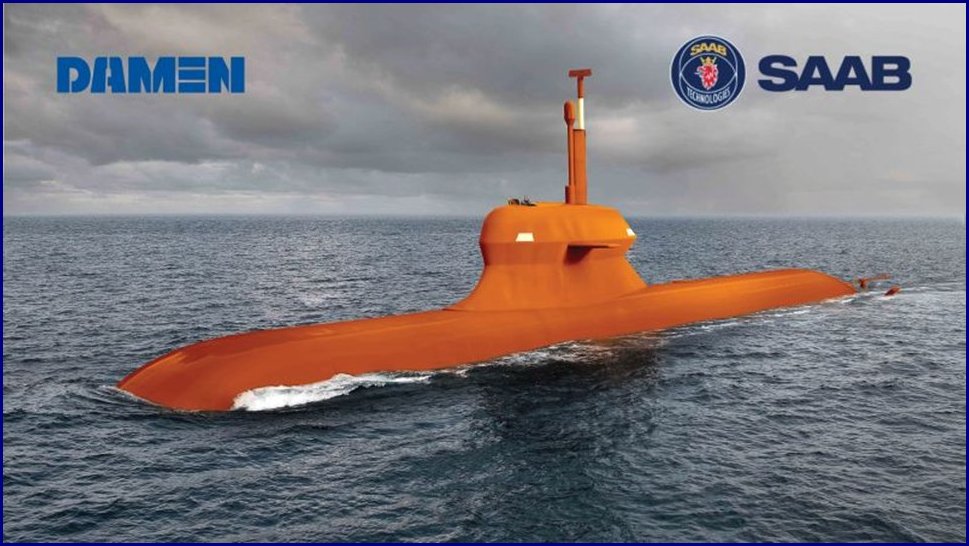
We as DRN would add that one should ask why Australia canceled a mega order for submarines with the French Naval and those were mainly delays in execution which increased the actual(quoted) cost.
Romania also saw the cancellation of an order for four frigates at Naval, where delays and interim cost increases also played a role. This underscores the statement that “cheap is expensive” applies.
The aspect is also rightly taken into account (not mandatory in matters of national security), but both in Romania and in the Netherlands (IHC)Naval is then called a national company with no significant experience, so mentioning local employment is a farce. For the Damen & Saab combination, at least, employment is set at a minimum of 50% or higher.
Furthermore, one might ask whether under the Market and Government Act of which the Competition Act is a part that there is unfair competition (or distortion of competition) because governments and public companies appear in the market and there is not a level playing field.
Dutch company Damen Shipyards wins contract to supply four all-electric passenger car ferries to British Columbia
In a competitive bidding process that attracted many international bidders, Damen Shipyards has won the contract to build and deliver four all-electric passenger car ferries for BC Ferries. These will be used for short-haul services in the coastal waters of the Canadian province of British Columbia (BC). This order brings to ten the total number of ferries that Damen has delivered to BC Ferries in recent years. However, these latest additions will be the first to run on 100% electric power. The ships will be based on Damen’s double-sided Island-class RoRo 8117 E3 model.
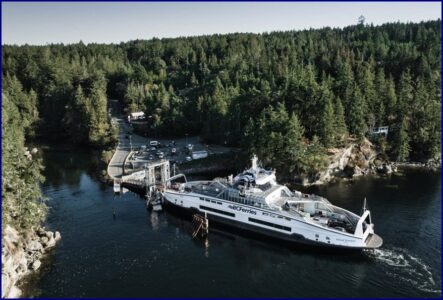
Each will be able to carry up to 47 vehicles and 390 passengers. Battery packs with a capacity of 2,000 kilowatts will provide the electricity for the powertrains. Rapid charging with renewable electricity will occur as ferries at each end disembark and embark their passengers and vehicles. Additional diesel engines will also be installed on each ship for backup and general redundancy. The shore charging equipment is also supplied by Damen. As a leader in this field, this will be the fourth time Damen has provided this service, the first time also in Canada, in 2021, in support of two hybrid Damen ferries delivered to the Ministry of Transportation, Ontario. These were followed by projects in Copenhagen, Denmark, and Dordrecht, the Netherlands. “The new hybrid electric ships will further standardize our fleet, both increasing capacity and improving our flexibility to move ships across different routes, so our passengers can be confident we will get them where they need to go,” said Nicolas Jimenez, BC Ferries’ President and CEO. “Adding more Island Class ships will also make it easier to deploy crew, make training costs more efficient and promote safe, reliable and environmentally conscious ferry services along the coast.” Leo Postma, Damen’s Area Director Americas, added: “We are very excited and very satisfied with the award of an order for four additional Island Class vessels for BC Ferries. We have been working with the technical staff of BC Ferries for seven years now and together we have developed a series of a total of ten ferries that are highly efficient; meeting all future requirements of safe, reliable and sustainable public water transportation.” The four ships are expected to enter service in 2027, with two ships each on the routes connecting Nanaimo Harbor and Gabriola Island, and Campbell River and Quadra Island.
Damen Shipyards delivers the second of a series of three new Damen Combi Freighter 3850 to Baltnautic Holding B.V.
2024 started well with the successful delivery of a second Damen Combi Freighter 3850, Violet, to Baltnautic Holding B.V., following the handover of the first vessel, named Indigo, just nine days earlier. The ceremony took place Jan. 11 in Shanghai, China.
Both vessels were built at Damen Yichang Shipyard in China as part of a highly successful program of the Combi Freighter series built at the shipyard over the past three years. Indigo and Violet are the 18th and 19th ships delivered. The third Combi Freighter for Baltnautic Holding B.V. is currently under construction at the same yard and is expected to be delivered in November of this year.
The ships are being delivered to Europe to meet the needs of Baltnautic Holdings’ customers exploring new business opportunities, and to support the company in building a stronger global presence. In this way, Indigo and Violet will contribute substantially to the modernization and overall growth of the company.
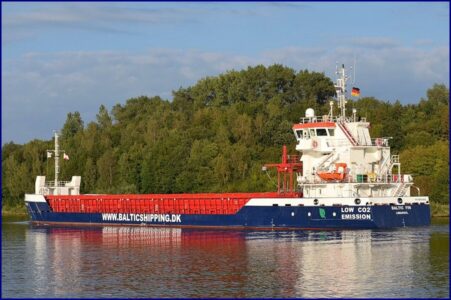 Coincidentally, both Damen Yichang Shipyard and Baltnautic celebrated their 25th anniversaries in 2023, and the two companies enjoy tremendous synergy and share an important milestone in their development.
Coincidentally, both Damen Yichang Shipyard and Baltnautic celebrated their 25th anniversaries in 2023, and the two companies enjoy tremendous synergy and share an important milestone in their development.
“We are happy and proud to have participated in the official delivery ceremony of our second new ship built for us by Damen Yichang Shipyard. They are the first new construction projects in the history of Baltnautic Holding B.V., which makes this moment very important for us. And what makes this moment even more special, and what we are particularly proud of, is that these new ships were made for us by the famous and globally recognized Damen Group of Shipyards,” said Igor Kuzminov, Deputy Managing Director.
“It is a great honor for us to be present here in Shanghai on behalf of Damen Shipyards together with our honorable customer Baltnautic Holding B.V. on the occasion of the ceremonial delivery of the remarkable dry cargo vessel type Combi Freighter 3850 Violet,” said Vadim Akimov. , Sales Director for Damen Shipyards. “This event symbolizes the culmination of hard work, dedication and cooperation from all parties involved.”
Netherlands has four new frigates built by Damen
The production and purchase of four air defense and command frigates is good for security and for the Dutch defense industry, says the outgoing cabinet. On Thursday, March 2, the purchase was confirmed. The decision was formally taken at the Council of Ministers on March 3. “We are going to tender production to Dutch industry through the companies Damen and Thales, but it won’t stay with those two companies,” said State Secretary of Defense Van der Maat.
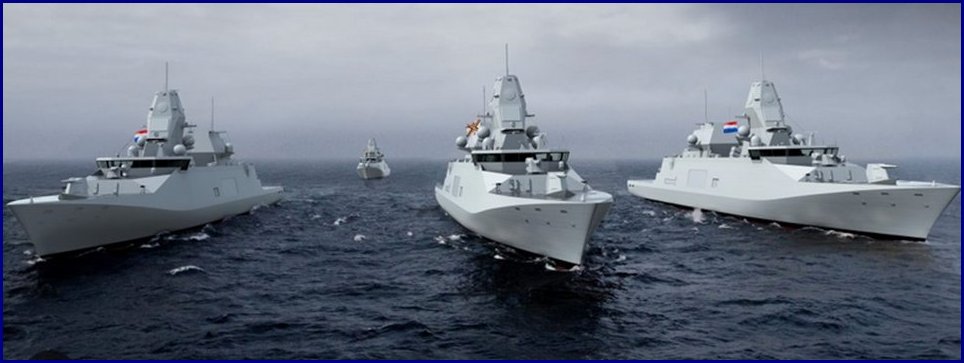
“We need to strengthen the Dutch defense industry. And Europe has to start holding its own more in that area. Especially through the maritime industry, the Netherlands can contribute to that.”
The four new ships are to replace the current four frigates no later than 2034. Manufacturing, which will take about a decade at least for the first ship, involves a lot, from building the huge hull to the highly sophisticated equipment. And it creates a lot of jobs.
Maritime manufacturing industry
“I am extremely happy about it,” said Economic Affairs Minister Adriaansens. “Holland’s maritime manufacturing industry must remain powerful. Those were just words on paper before, now we’re going to do it for real.”
It is one of the largest maritime projects ever. Some eight billion euros is involved. Van der Maat would not confirm that, as business negotiations with the various companies have yet to take place. However, he does want to say that it will cost at least 2.5 billion euros, and that prices of steel, for example, will skyrocket.
And more such projects are coming. Van der Maat: “We are going to purchase a total of 24 topside vessels, these four being the largest.” Construction of the ships will be awarded to the Dutch maritime industry, with shipyard Damen leading the way. The air defense and command frigates are to eventually replace the current four Dutch frigates. Those have now been in service for some 20 years.
A decision on the proposed construction of four new submarines for the Dutch Navy is also due soon. For that order, worth €5bn, Damen is also in the race, alongside a number of foreign companies.See report on French Naval elsewhere in this newsletter.
KT Marine selects Damen for fast delivery of new Fast Ferry 4212
Damen Shipyards has signed a contract to build a new Fast Ferry 4212 (FFe 4212) for South Korean ferry operator KT Marine. The contract signifies not only the continued success of Damen’s position in the South Korean ferry industry, but also the proven design of the FFe 4212. The progressive construction strategy will allow Damen to deliver the vessel in mid-2024. . Damen-built Fast Ferries have become an increasingly common location in South Korean waters in recent years. This trend will continue with this latest vessel for KT Marine, the seventh Damen Fast Ferry built for the Korean market.
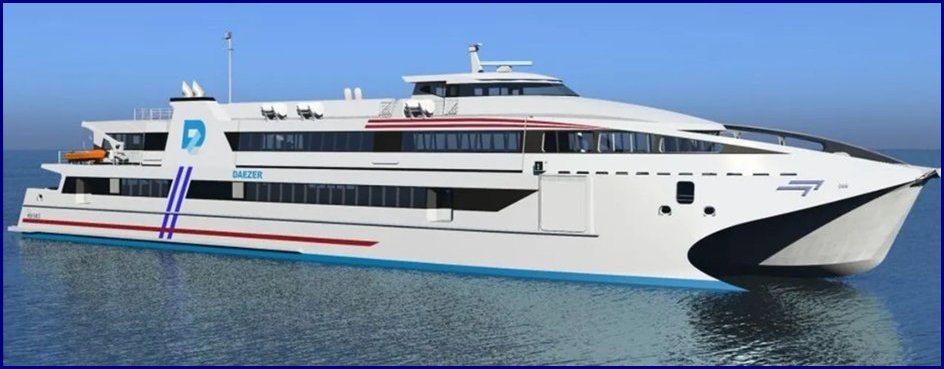
In addition, the FFe 4212 is a particularly suitable design, as this new vessel will be the fifth built for South Korean operators. It was this proven market position and excellent performance that brought Damen to KT Marine’s attention. “Damen’s Fast Ferry 4212 excels in both quality and delivery time,” said Mr. Og Yeol Bag, president of KT Marine, after signing the contract with Damen. “Moreover, our management team strongly believes that our choice of Damen for the Fast Ferry 4212 will enable us to take our service to the highest standards, comfort and reliability for our valued customers.” The FFe 4212 is a 42-meter-long aluminum catamaran that can carry up to 423 passengers and has a maximum speed of 40 knots. The power required to achieve these speeds is provided by four main engines that deliver 5,760 hp to four water jets. The model is known for its reliability and high comfort on board. To that end, KT Marine will deploy the new vessel on a route between the port of Yeosu and Geomundo Island (off the southern coast of South Korea). As with its other best-selling ship designs, Damen is building the FFe 4212 with a speculative construction strategy. The vessel ordered by KT Marine is therefore already under construction at Damen Song Cam Shipyard in Vietnam and is expected to be ready for delivery in mid-2024. KT Marine is a new customer for Damen, a fact Damen’s Regional Sales Director Asia-Pacific Thomas Röwekamp referred to shortly after signing the contract. “We are honored to welcome KT Marine to the Damen family,” he said. “They looked at all available options before choosing our successful Fast Ferry 4212. The proven and reliable Fast Ferry 4212 will again be a great addition to the South Korean ferry market and, of course, for the scenic route from Yeosu to Geomundo Island.”
Financial sector
BRD, Romania’s third largest bank, is up for sale – sources. There are already banks interested
Societe Generale, BRD’s parent bank, third in terms of assets in the local banking system, hired a major consultant to find a buyer for the local subsidiary.
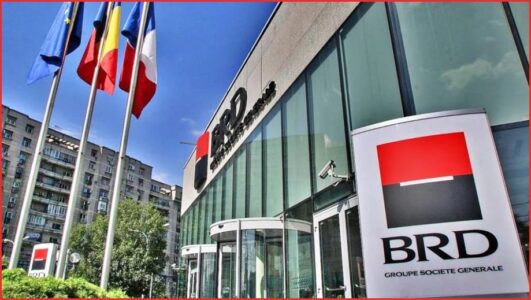
JP Morgan has been hired by Societe Generale to explore the possibility of finding a buyer for BRD.
According to the source cited, the process is at an early stage, but there is already interest from Belgium’s KBC Group.
The BRD Group increased its profit by 20.8% to 1.23 billion lei in the first 9 months of 2023, compared to the same period of the previous year, against the backdrop of the increase in interest income. BRD Group’s revenues increased by 11.4% compared to the previous year, reaching 2.83 billion lei. Net interest income increased 16.5% to 2 billion lei, reflecting increased lending activity and higher interest rates on the asset portfolio.
France’s Societe Generale is in a resettlement process that includes the sale of four subsidiaries in Africa, a move announced late last year.
Credit products intended for micro-enterprises and small businesses are now accessible online on the ING Business platform
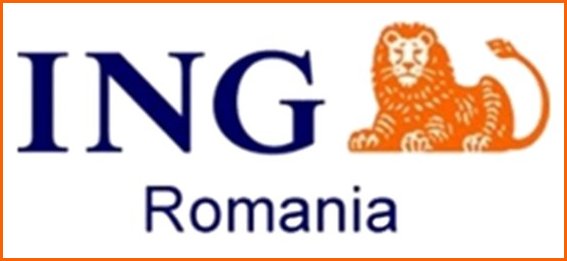 ING Bank Romania is expanding its portfolio of digital solutions for its customers in the SME segment, launching a line of credit that can be accessed 100% online on the ING Business web platform, the company said in a statement to Economica.net.
ING Bank Romania is expanding its portfolio of digital solutions for its customers in the SME segment, launching a line of credit that can be accessed 100% online on the ING Business web platform, the company said in a statement to Economica.net.
ING customers can obtain up to 500,000 lei online, without the need for material guarantees, supporting financial documents and without an annual audit.
The Util line of credit is the second 100% digital financing product offered by ING to micro-enterprises and small businesses, following the launch last year of the installment loan with repayment in equal installments, with instant access to funds. Interest in digital finance products among ING customers is high. Six months after the launch of Useful Credit in ING Business, nearly 40% of eligible digital loans were made 100% online.
“Small businesses often need to adapt quickly to market changes and find quick financing solutions to support and grow their business. In this context, ING Business’ web platform now offers entrepreneurs the tools they need to keep their business developing in a healthy way: the Credit Line and the Useful Term Loan, available anywhere and anytime.
 The Util line of credit is a flexible and convenient option for covering ongoing expenses, such as paying vendors, taxes or salaries, as well as dealing with unforeseen expenses. For larger investments, the Term Loan is a more appropriate choice.
The Util line of credit is a flexible and convenient option for covering ongoing expenses, such as paying vendors, taxes or salaries, as well as dealing with unforeseen expenses. For larger investments, the Term Loan is a more appropriate choice.
We strive to significantly expand the range of digital products and services available to entrepreneurs, with the goal of continually improving our customers’ experience. Conversations with customers are our inspiration for future offerings and we are always looking to support the growth of each business,” said Mihaela Otel, director of product development at ING Bank Romania’s Business Banking division.
Who has access to the Util line of credit?
The Util line of credit was created for micro-enterprises and small businesses with sales of up to nine million lei. For ING customers, the Util line of credit is accessible 100% online, without bank intervention, directly from the Internet banking platform ING Business.
At the same time, for both customers and those who are not yet ING customers, the Util line of credit can be granted at any ING branch. Amounts from the line of credit can be used without further verification by the bank. If customers need to make a payment to a supplier or pay a promissory note and the balance in their checking account is insufficient, the line of credit is automatically used to cover the missing amount, within the limit of the available line of credit.
Philipp Gamauf will be the new Chief Financial Officer (CFO) of ING Bank Romania.
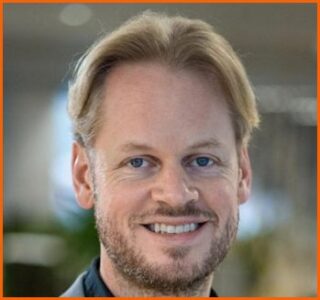 His term began last March 1, when he took over from Lucica Pitulice. Philipp Gamauf will also be a member of the bank’s Executive Committee.
His term began last March 1, when he took over from Lucica Pitulice. Philipp Gamauf will also be a member of the bank’s Executive Committee.
“I am pleased to announce the arrival of Philipp Gamauf at ING Bank Romania. His extensive international experience will further strengthen our team and I am sure he will contribute to the success of ING Bank Romania in the coming years. I am also confident that Philipp will find opportunities here to further develop his career. In 2024, ING will celebrate its 30 years of presence on the Romanian market and I am very pleased that Philipp is joining us at such an important time for us” – Mihaela Bîtu, CEO of ING Bank Romania.
Philipp Gamauf has more than 15 years of banking experience and previously served as CFO of UniCredit Bank Austria.
Geopolitical developments
It was known that several elections would take place in Europe in this year but as the possible consequences become more and more visible, the business community is also becoming increasingly interested who normally rightly keep far away from political scheming. The media also interfere in the political debate, confusing facts with personal opinions. Throughout Europe (as well as the US) there has been great unrest over the sharp rise of the far right and its consequences. Some members of the newsroom try to lead their readers astray by calling it radical instead of extreme, for example, but on the whole, everything comes down to the same thing. For those interested who do not want the lie to rule, we can recommend the enlightening May 2019 publication “What is the difference between radical and far-right (and what is fascism)?” from the Dutch platform for journalists “De Correspondent.”
Or as former politician Alexander Pechtold succinctly summed it up “If something looks like a duck, walks like a duck and quacks like a duck, then it is a duck.”
The antics of the president of the European Council Charles Michel
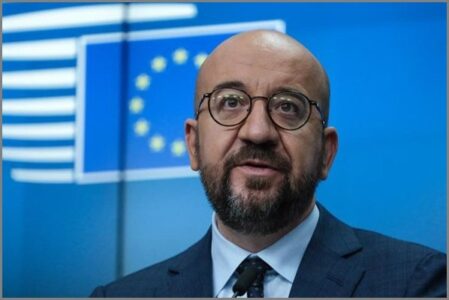 Charles Michel recently announced his interim departure from the European Council, causing a storm of protest, as it would result in Viktor Orbán taking his place as Hungary holds the EU presidency for the second half of the year. The underlying intention was to continue his career through his party the Mouvement Réformateur which is an alliance of two French-speaking and one German-speaking right-wing and center-right political parties in Belgium. However, the European parliamentary elections will take place next June 6-9 and Charles Michel’s term ends in December.
Charles Michel recently announced his interim departure from the European Council, causing a storm of protest, as it would result in Viktor Orbán taking his place as Hungary holds the EU presidency for the second half of the year. The underlying intention was to continue his career through his party the Mouvement Réformateur which is an alliance of two French-speaking and one German-speaking right-wing and center-right political parties in Belgium. However, the European parliamentary elections will take place next June 6-9 and Charles Michel’s term ends in December.
Now that he has decided to serve out his time – albeit winged – his plans for participation in the for the European Parliament are falling apart. What goes around comes around.
More on the European Union’s “nuclear option”
It has nothing to do with bombs and grenades, but it is the (extreme) tool of the European Union.
The European Union is based on common values that bind countries and people. These values are set out at the beginning of the EU Treaty, in Article 2. They include respect for human dignity, freedom, democracy, equality, the rule of law and respect for human rights. A breach of EU values warrants a response at the EU level.
The Article 7 procedure of the EU Treaty was introduced in the Treaty of Amsterdam in 1997. It includes two mechanisms to protect EU values:
- For preventive measures, if there is a clear risk of violating EU values,
- And sanctions, if such a violation has already occurred.
It can have the effect of blocking allotted, as well as making voting rights inapplicable.
The European Parliament is concerned that the Hungarian government is repeatedly and systematically trying to undermine the fundamental values of the EU.
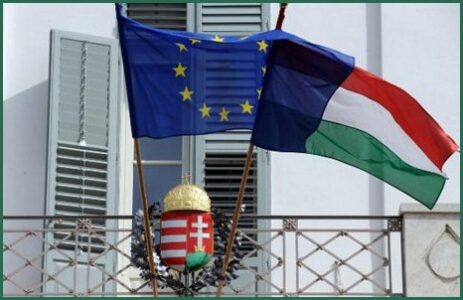 In a resolution adopted in January 2024, MEPs expressed concern about the erosion of democracy, the rule of law and fundamental rights in Hungary. The vote came as an immediate response to the recently passed “national sovereignty” law by the Hungarian parliament and following Hungarian Prime Minister Viktor Orbán’s latest action to block the key decision in the review of the EU’s long-term budget, including EU aid to Ukraine. On June 1, 2023, in light of Hungary’s upcoming presidency of the Council of the EU from July 2024, the Parliament again criticized developments in Hungary. MEPs highlighted ruling by decree, attacks on LGBTIQ+ rights and teachers, as well as systematic corruption. They condemned the Hungarian government’s anti-EU campaigns and doubted the country’s fitness to take over the presidency. They also reiterated their concerns about the misuse of EU funds.
In a resolution adopted in January 2024, MEPs expressed concern about the erosion of democracy, the rule of law and fundamental rights in Hungary. The vote came as an immediate response to the recently passed “national sovereignty” law by the Hungarian parliament and following Hungarian Prime Minister Viktor Orbán’s latest action to block the key decision in the review of the EU’s long-term budget, including EU aid to Ukraine. On June 1, 2023, in light of Hungary’s upcoming presidency of the Council of the EU from July 2024, the Parliament again criticized developments in Hungary. MEPs highlighted ruling by decree, attacks on LGBTIQ+ rights and teachers, as well as systematic corruption. They condemned the Hungarian government’s anti-EU campaigns and doubted the country’s fitness to take over the presidency. They also reiterated their concerns about the misuse of EU funds.
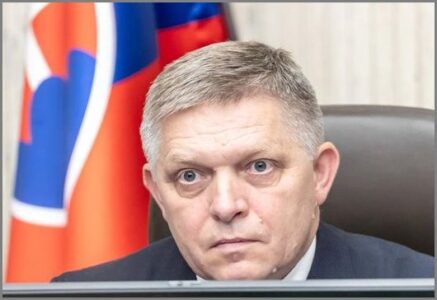 Slovakia also threatens to take the same course as Hungary. Slovak Prime Minister Robert Fico claimed in a statement to Slovak radio that he would block Ukraine’s entry into NATO. He claims that Ukraine will have to make a “compromise” and cede its territory to Russia, writes The Kyiv Independent .
Slovakia also threatens to take the same course as Hungary. Slovak Prime Minister Robert Fico claimed in a statement to Slovak radio that he would block Ukraine’s entry into NATO. He claims that Ukraine will have to make a “compromise” and cede its territory to Russia, writes The Kyiv Independent .
The Slovak prime minister, who has consistently sided with Hungarian leader Viktor Orban in his statements on Ukraine, claimed that Kiev is dominated by Washington. He said Ukraine would have to cede part of its territory to Russia, which he called a “compromise. It does not benefit strong EU action toward the Russian Federation.
Why Romanian President Klaus Johannis has the best papers to be appointed Secretary General of Navo
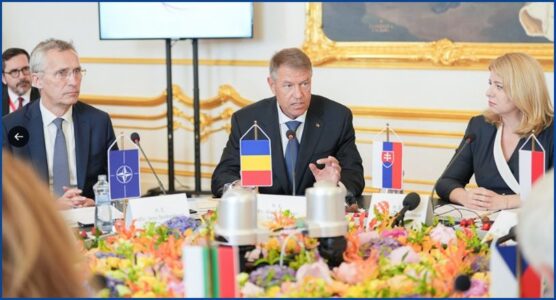 An important basic requirement for being appointed to this position is unanimity.
An important basic requirement for being appointed to this position is unanimity.
Clearly, the conflict between the Russian Federation and Ukraine plays the most important role. Romania has the longest border with Ukraine, deterrence is very important here. It is of course widely known that the Netherlands has not yet met its 2% minimum obligation 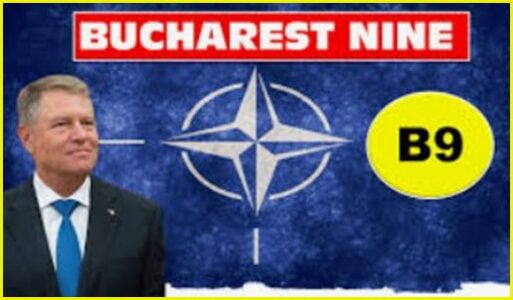 and Romania is well above this standard. Klaus Johannis is seen within the EU and NATO as a reliable ally and best known for his strategic insight. Romania is a politically stable country and unfortunately we cannot say the same of the Netherlands. In NATO circles, his decisiveness is well known when he took the initiative in 2015 to form a first buffer with 9 Eastern European countries against the aggressiveness of the Russian Federation. The war in Ukraine began not in February 2022, but as early as 2014 with Russia’s illegal annexation of Crimea and secession of the self-proclaimed People’s Republics of Donetsk and Lugansk.
and Romania is well above this standard. Klaus Johannis is seen within the EU and NATO as a reliable ally and best known for his strategic insight. Romania is a politically stable country and unfortunately we cannot say the same of the Netherlands. In NATO circles, his decisiveness is well known when he took the initiative in 2015 to form a first buffer with 9 Eastern European countries against the aggressiveness of the Russian Federation. The war in Ukraine began not in February 2022, but as early as 2014 with Russia’s illegal annexation of Crimea and secession of the self-proclaimed People’s Republics of Donetsk and Lugansk.
This initiative has the name of B9, meaning the B of Bucharest and the number of countries participating in it.
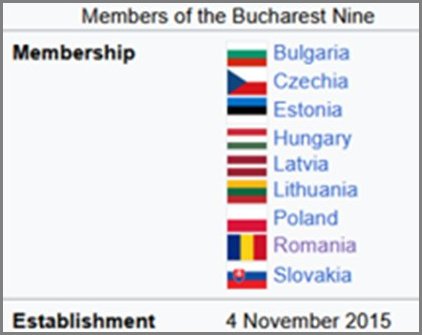
Also in the picture at the Council of Europe is Klaus Johannis
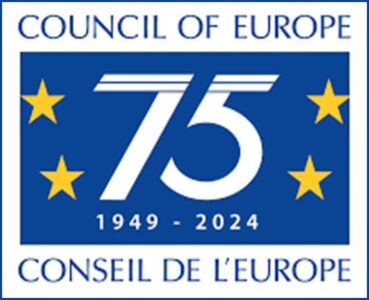 The Romanian government asked Klaus Johannes to run for the presidency of the Council of Europe partly supported by countries in Central and Eastern Europe who believed (and rightly so) that leadership positions (EU and NATO) are filled by Western Europeans in proportion mostly with rare exception. Finally – after the latest enlargement – 110 million Europeans live in Central and Eastern Europe
The Romanian government asked Klaus Johannes to run for the presidency of the Council of Europe partly supported by countries in Central and Eastern Europe who believed (and rightly so) that leadership positions (EU and NATO) are filled by Western Europeans in proportion mostly with rare exception. Finally – after the latest enlargement – 110 million Europeans live in Central and Eastern Europe
However, the antics surrounding current president Charles Michel have temporarily (until December 2024) made this issue less topical.
Last but not least: The Three Seas Initiative 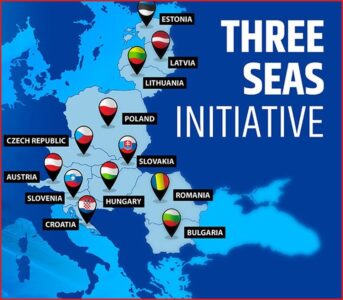
It is a forum of 12 EU member states along or near the Baltic, Black and Adriatic Seas, with the aim of promoting mutual dialogue on various common issues of concern to the countries involved.
Its members are Bulgaria, Croatia, the Czech Republic, Estonia, Hungary, Latvia, Lithuania, Austria, Poland, Romania, Slovakia and Slovenia.
A first two-day summit on Aug. 25 and 26, 2016, which also featured a senior representative of the Chinese government as a guest speaker lecturing on the New Silk Road. It was agreed to strengthen economic cooperation, especially in the areas of energy and infrastructure.
Here, too, Romania plays a role with Klaus Johannis leading the way, and with this it forms a counterweight that is largely filled by the Western European EU member states. More than before – especially given the war in Ukraine, Europe will have to be united.
Special Messages
Post Craiova – flight shame

For decades I have lived and worked in Romania as well as in the Netherlands. Over the years, both countries have become intertwined with my entire life: family, work and friends. To commute back and forth between my two home countries, I use the plane on a weekly basis. You can safely call me an extreme frequent flyer. To what extent is this justifiable in these times of climate crisis? Although this question is coming up more and more often, I hold a – I fear – less common opinion. I see many good reasons why we should not or cannot stop flying.
These reasons, of course, are not just about me personally. The ability to fly is indispensable for the economic development of many areas on the periphery of Europe and for the people who live there. Craiova is not exactly in the heart of Europe and NetRom would not function without the airport that provides a supply of employees and business visitors. But more sectors benefit, although this is not apparent to everyone. A good example is dentists. I met a lady from the Netherlands on a plane a while ago who combined a week’s trip to Craiova with some treatments to her teeth. A large number of other businesses in the region also depend on orderly accessibility and accessibility.
Flying increases equity of opportunity. If you live in a remote corner, this may be the only opportunity to develop economically. It is almost impossible for affluent Western Europeans to imagine what this means for families in Romania. Not only internationally, but also within the country. Emerging budget airlines are providing relief for Romanian youth who come from far and wide to work in industries where they can earn salaries by Western European standards. In which they can also return a few times a year to visit their parents and family.
With increasing prosperity also comes a desire to explore the world. More and more of our younger employees are getting on planes for city trips to other cities in Europe. Can this curiosity about the world still be seen as sufficient reason to get on a plane? The answer may be more nuanced than you are used to from me. Just 25 years ago, as a Romanian, you needed a visa to get out of the country and no one had money for vacation. During the same period, Western Europe’s prosperity was rapidly increasing and with it the number of (long-distance) air travel. For decades, Western countries have benefited from growth in prosperity with little awareness of environmental consequences and with a huge waste of cheap fossil energy. And we still do. I therefore have great difficulty in putting less central regions of Europe by the same yardstick that we are now – recently – using for ourselves.
So while flying is quite justifiable from an economic and social perspective in my view, reducing my CO2 emissions does concern me. In particular, I compensate by investing in green energy, both at home and at work. There are already solar panels at home and they are also being installed for our campus facility in Craiova. CO2 reduction is very important and I want to put time, energy and money into this. But stopping flying is not a workable solution as far as I am concerned.
OPERA GALA 2024
Second Edition
Puccini & Friends
Passionate arias, duets and opera choruses from such works as.
Madame Butterfly-Tosca-Turandot- Manon Lescaut and La Bohéme

During a spectacular Opera Gala at the Concertgebouw Amsterdam, the most beautiful arias, duets and opera choruses from music history will once again take center stage. This year, Puccini stars with absolute highlights from Tosca, Turandot, Manon Lescaut and La Boheme, among others. True gems of the operatic repertoire in the passionate Verisme style Puccini excelled at. Also on the program are well-known contemporaries of Puccini such as Mascagni (with the Easter Choir) and Leon Cavallo (with Paglacci).
At the Concertgebouw Amsterdam on Monday, May 27, Tuesday, May 28 and Wednesday, May 29, 2024, after last year’s great success, The National Opera of Timisoara will once again perform under the direction of conductor Raymond Janssen. Internationally renowned soloists, together with the chorus and orchestra, provide an unparalleled musical spectacle featuring only highlights from the famous opera repertoire. This Opera Gala is a concert full of heart and passion in which more than 120 musicians participate.
Puccini’s operas are characterized by emotionally and dramatically charged music with beautiful melodies and orchestral grandeur that convey the intense emotions and conflicts of the characters. The theme always revolves around love triangles, betrayals and tragic endings. Puccini and his contemporaries paved the way for a realistic and passionate approach to music that still resonates with today’s audiences through recognizability. Including the arias; Nessun dorma, Signore ascolta, Visi d’arte, Che gelida manina, Si, Mi chiamano Mimi, Un bel di vedrema and O mio babinno caro.
The over-familiar arias from the opera Tosca. The soprano aria Visi d’arte and for the tenor “E lucevan le stelle.” In which Cavaradossi’s execution is a fait accompli and remembers Tosca with melancholy. Whirlwind overtures and the poignant interlude from Mascagni’s opera Cavaleria Rusticana. Followed by the grandiose and over-familiar Easter Choir “Regina Coeli” from the opera of the same name.
The Opera Gala is a “must” for lovers of classical music.
The February concerts were completely sold out, so be quick!
A well-known director aptly put it.
Opera is an espresso shot mixed with a big dose of humanity.
Opera is the fitness center of emotions
The National Opera Timisoara
For the performance of the Opera Gala, the National Opera of Timisoara in Romania, (in 2023 the cultural capital of Europe) signs on. Internationally renowned soloists collaborate in this musical spectacle under the direction of conductor Raymond Janssen, showcasing the most beautiful and well-known arias, choruses and ensembles.
Conductor Raymond Janssen
With his many roles as conductor, pianist and as initiator of Cadenza European Productions, we can say that Raymond Janssen is a jack-of-all-trades. The musician regularly performs in sold-out, established concert halls in the Netherlands, Belgium, Germany and France and is acclaimed for his high-quality, high-class performances. His mission? Bringing Eastern Europe and Western Europe closer together. The rich tradition from Eastern European countries can be heard and felt, and everyone should know that! In addition to symphonic repertoire, Raymond Janssen has a strong affinity for opera. Performances with the likes of Ileana Cotrubas, Gail Gilmore, Janice Baird and Eugene Holmes brought him to major music venues in Europe. In the Netherlands we know him, among other things, from the successful series with the Carmina Burana concerts, the Verdi and Mozart requiem, the Opera galas, Porgy&Bess and the various programs with film music, Earlier, the music from The Lord of the Rings trilogy was brought to life with verve during a special concert series as well as The Star Wars Suite, the Matthäus-Passion and the Mozart requiem.
Where & When: Concertgebouw-Concertgebouw 10-1071 LN Amsterdam. On Monday, May 27, Tuesday, May 28 and Wednesday, May 29. For reservations: www.cadenza-productions.nl
Why you should especially (not) go to the Opera Gala.
Because it is an opera concert with passion and heart. You are confronted with that which we have been missing for a lifetime. The real emotions without” yes but” imagine sitting there and just like that you are taken away by a sound experience that touches you to your soul. Puccini’s music is especially good at this. Maybe you belong to the “happy few” and lead a brisk life, then you should go right ahead and recognize the drive, the espresso shot that brings you into a stupor and lets you enjoy life like a big party.
Sometimes we forget that music and especially Opera can acutely expose our real emotions and everything associated with them. Wonderful anyway, because this is what we ultimately are.
In La bohème, the artist Rudolfo conquers the uncertain and timid Mimi; the big strong man takes care of the fragile Mimi and stays until her dramatic end.
Mascagni’s Easter Choir, Sicily at its best, a Sunday morning, you wake up, sneak out of your bed and steal the best chicken in the village, on the way you pass the home of your wife’s lover, you decide to go inside and finally you kill him and go home with the chicken and the blood in your bag. Then brace yourself and go to High Mass on Easter Sunday and sing Regina Coeli.
Tosca …Scarpia a police commissioner who is plotting to take control of Tosca with treachery, deception and false deceit, he is disturbed by cannon roaring and simultaneously the Te Deum begins. Twofold, the enthusiasm of religion and the false intrigue of a power-hungry world collide. This duality unleashes immense tension for the listener who relaxes again at Tosca’s romantic aria “Visi d’are” Only for Art, the showpiece of the renowned Maria Callas.
The prologue from Pagliacci, announced by a clown, an entertaining play that actually involves an intense drama that is not yet understood in the prologue yet soon becomes clear. An announcement that freezes, an entire book by Stephan King in 5 minutes.
This is only for audiences with nerves of steel, who can handle emotions, who don’t shy away from the roller coaster and go for the broad pallet and are also willing to take the handkerchief out of their pocket. Performed by people who know what they are doing at the Concertgebouw Amsterdam.
Hungarian president steps down after protests over pardon in abuse case
Conservative Hungarian President Katalin Novák steps down after massive protests and under government and opposition pressure. She had pardoned a man convicted of covering up sexual abuse of minors.
Thousands of protesters had demanded Novák’s departure Friday night in the Hungarian capital, Budapest.
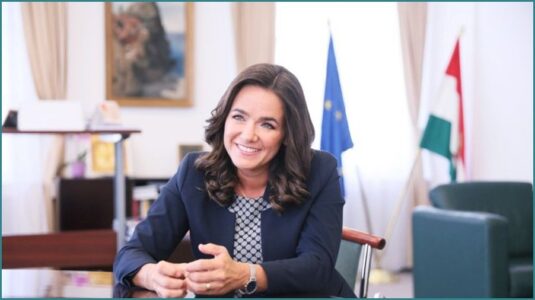 The man she had pardoned was deputy director in an orphanage and was trying to protect his boss. The scandal cast a huge shadow over the highly nationalistic government of Prime Minister Viktor Orbán, in part because both Novák and Orbán preach traditional family values.
The man she had pardoned was deputy director in an orphanage and was trying to protect his boss. The scandal cast a huge shadow over the highly nationalistic government of Prime Minister Viktor Orbán, in part because both Novák and Orbán preach traditional family values.
Several of the president’s advisers had already resigned. Novák had been Hungary’s first woman head of state since May 2022. She had primarily a ceremonial role.
Former Justice Minister Judit Varga is also resigning from her position as an MP. She was expected to be list leader for Hungary’s ruling Fidesz party in the June European elections and agreed to the pardon as then justice minister.
Varga announced Saturday on Facebook that he was stepping down. “I am withdrawing from public life. I am resigning my position as a legislator and the top position on the list for the European party,” she said.
Median wealth of Romanians compared to other European countries
On the map below, we can see how much personal wealth an average European adult has. Wealth is expressed in U.S. dollars and includes both financial and non-financial wealth. Non-financial wealth consists mainly of land and real estate.
This chart shows the median and not the average, since an average is usually skewed by the extremely wealthy, resulting in an amount much greater than the wealth of most adults. For the median, half of the population has more wealth than the number shown and half has less wealth.
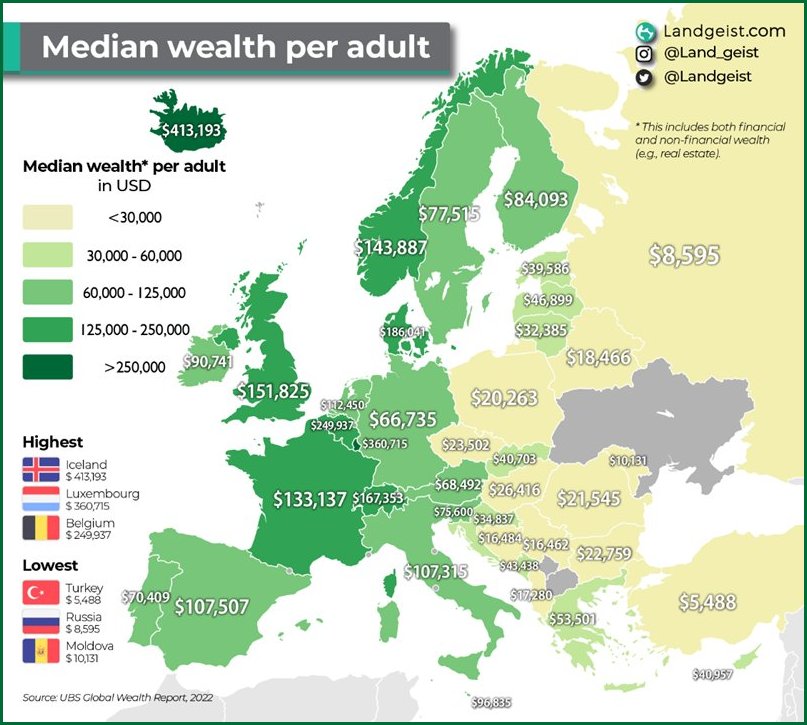
People in Luxembourg ($360,715) and Iceland ($413,193) have by far the most wealth in Europe. As we can see from the map, the western half of Europe clearly has a higher average wealth than the eastern half of Europe.
Of course, this can be partly explained by the high level of average wages and the cost of living in these countries. However, there are still some significant differences between countries with similar costs of living and GDP per capita.
The lowest average wealth is found in Turkey ($5,488) and Russia ($8,595). These are the only countries in Europe where the average wealth is less than $10,000.
In Romania, the average value of wealth is $21,545/adult, according to pe.cifre , quoting Landgeist.com .
Dutch for three years in a row Best Restaurant in Romania
Located in the atmospheric Lipscani district in downtown Bucharest, one can find numerous atmospheric restaurants such as Caru cu Bere and Hanul lui Manuc but the pinnacle of gastronomy is undoubtedly The Artist which has been awarded the designation of the “Best Restaurant in Romania” by the World Culinary Awards for three years.
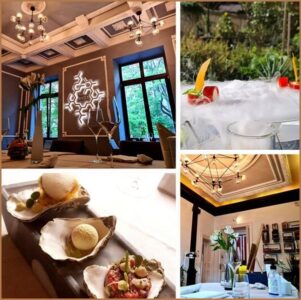 The additional ambiance also provides a special atmosphere.
The additional ambiance also provides a special atmosphere.
It was founded 11 years ago by Paul and Mihaela Oppenkamp. Paul Oppenkamp, originally from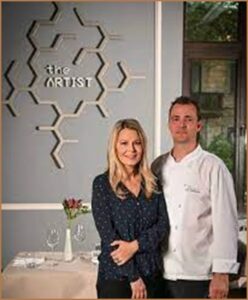 Horn, is the creator of the menus served at the restaurant, while Mihaela, originally from Bucharest, is the restaurant’s hostess and manager. Paul Oppenkamp says the last five years before the restaurant opened in 2012 may have been the most important in forming him and his wife as future entrepreneurs. “I have worked for some of the most successful entrepreneurs in the world, with whom I have and still have close ties to this day. Inspired by their stories, we dared to take the step in this direction. We still keep in touch with them and enjoy together the achievements we have made in Romania, from 2012 to now.”
Horn, is the creator of the menus served at the restaurant, while Mihaela, originally from Bucharest, is the restaurant’s hostess and manager. Paul Oppenkamp says the last five years before the restaurant opened in 2012 may have been the most important in forming him and his wife as future entrepreneurs. “I have worked for some of the most successful entrepreneurs in the world, with whom I have and still have close ties to this day. Inspired by their stories, we dared to take the step in this direction. We still keep in touch with them and enjoy together the achievements we have made in Romania, from 2012 to now.”
Disclaimer

The newsletter of the Dutch Romanian Network is compiled with great care. The Dutch Romanian Network cannot accept any liability for a possible inaccuracy and/or incompleteness of the information provided herein, nor can any rights be derived from the content of the newsletter. The articles do not necessarily reflect the opinion of the board.
